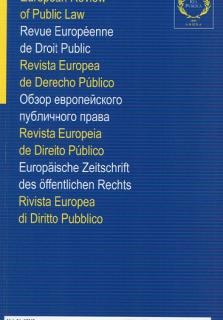
STATUTORY INTERPRETATION AND THE JUDICIAL ROLE
IN THE UNITED KINGDOM
GORDON ANTHONY
Professor of Public Law, Queen's University, Belfast
This article considers the role that UK courts play when interpreting statute law in the light of domestic constitutional norms. Although it is well known that the UK does not have a codified text that consolidates constitutional values, there are a number of unwritten norms that have had an historical and contemporary influence on the judicial approach to statutory interpretation. The most important of these has long been the doctrine of Parliamentary sovereignty, but recent years have also seen an increased interest in "common law constitutionalism". According to that constitutionalism, many key developments in the UK are governed by judicial elaboration of the common law, with notable examples including the reception of EU law, the reach of domestic and European fundamental rights standards, and the nature of the UK's devolution settlement. The article notes a range of interpretive techniques associated with such constitutionalism, and suggests that they are moving the courts almost unavoidably towards the full constitutional review of Acts of the Westminster Parliament. It also suggests that this raises questions of democratic legitimacy that may best be addressed within the framework of a written constitutional text for the UK.
L'article examine le rôle que jouent les tribunaux du R.-U. en interprétant les lois à la lumière des règles constitutionnelles internes. On sait que le R.-U. n'a pas de texte codifié consolidant les valeurs constitutionnelles, mais il existe un grand nombre de règles non écrites qui ont eu une influence historique et contemporaine sur l'approche judiciaire de l'interprétation des lois. La plus importante de ces règles a longtemps été la doctrine de la souveraineté parlementaire, mais ces der¬nières années ont aussi vu s'accroître l'intérêt pour le "constitutionnalisme de common law". Selon ce constitutionnalisme, de nombreux développements clés au R.-U. sont gouvernés par l'élaboration judiciaire du common law, avec pour exemples notables la réception du droit de l'UE, la portée des standards internes et européens des droits fondamentaux, et la nature du règlement de décentralisation du R.-U. L'article note toute une série de techniques interprétatives associées à ce constitutionnalisme et suggère qu'elles poussent quasi inéluctablement les tribunaux vers une révision constitutionnelle complète des actes du Parlement de Westminster. Il suggère également que cela soulève des questions de légitimité démocratique qui seraient mieux traitées dans le cadre d'un texte constitutionnel écrit pour le R.-U.





















